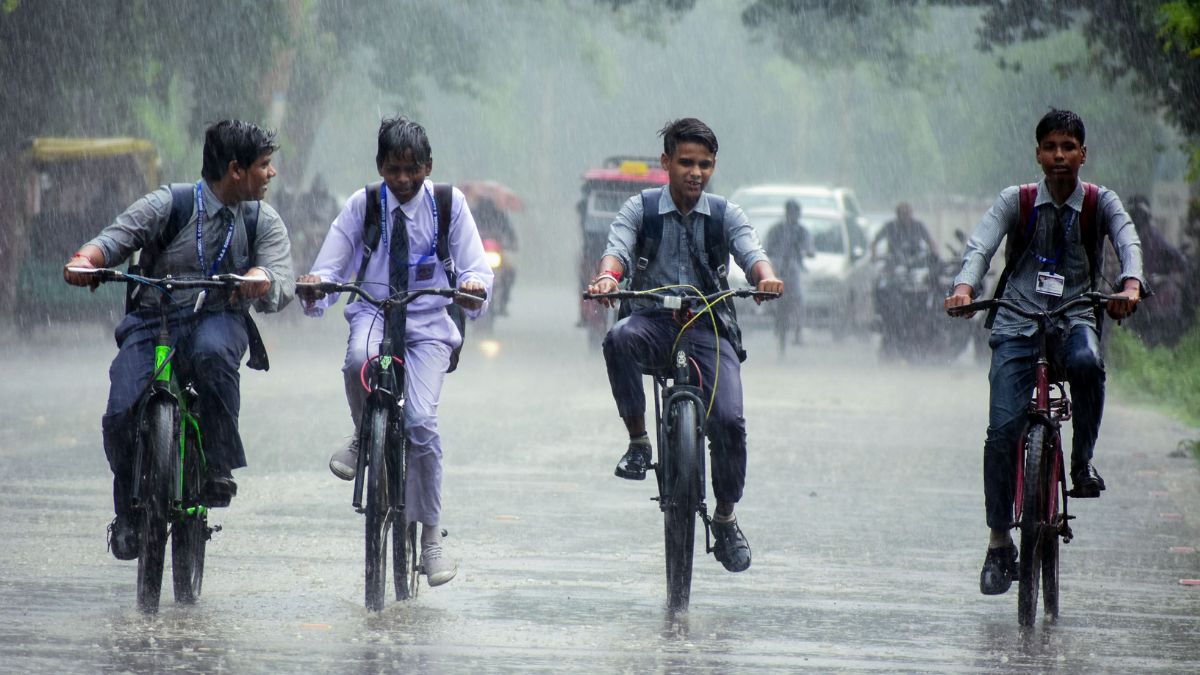Heavy rainfall across South India, particularly in Bengaluru, Chennai, and parts of Andhra Pradesh, has caused significant disruptions, impacting daily life and prompting emergency responses from local governments. The incessant downpours have led to widespread flooding, traffic congestion, power outages, and flight delays, forcing authorities to take precautionary measures to ensure public safety. This situation highlights the vulnerability of urban infrastructure to extreme weather events and the challenges involved in managing the consequences of heavy rainfall in densely populated areas. The meteorological department has issued alerts predicting continued heavy rainfall in several regions, prompting ongoing concerns about potential further damage and disruption. The response from local governments has included school and college closures, as well as a shift towards online learning for many institutions, demonstrating a proactive approach to mitigating the risks associated with the severe weather. This article will delve into the specifics of the impact of these rains on the mentioned areas.
Chennai Braces for Impact of Heavy Rainfall
Chennai has borne the brunt of the recent deluge, experiencing widespread flooding that has submerged streets and severely hampered public transportation. The India Meteorological Department (IMD) issued warnings of very heavy rainfall and thunderstorms, prompting concerns about the safety and well-being of residents. Despite the initially severe weather, schools and colleges in Chennai and neighboring districts, including Kanchipuram and Tiruvallur, resumed in-person classes on Thursday after a red alert was lifted.
Impact on Daily Life
The torrential rain led to knee-deep water in several areas, making it difficult for residents to commute and leading to significant disruptions to their daily routines. Many roads were rendered impassable, and public transport was significantly affected. Businesses were forced to close, and many residents faced prolonged power outages, adding to the difficulties experienced by the community.
Governmental Response and Preparedness
The Tamil Nadu government, under Chief Minister MK Stalin, has been actively monitoring the situation and taking steps to address the challenges posed by the heavy rains. Inspections of affected areas were carried out to assess the damage and to coordinate relief efforts. The swift response and active monitoring by government authorities provided crucial support to the residents, aiding in mitigating the consequences of the flooding. Although the red alert was lifted and schools reopened, continued monitoring was necessary as further rain was a possibility.
Bengaluru Battling Heavy Rainfall and Ongoing Alert
Bengaluru has also been experiencing torrential rain, with a heavy rainfall alert remaining in effect for several days. While schools and colleges remained open on Tuesday, several private schools made the decision to cancel classes on Wednesday in response to the severe weather conditions. The significant rainfall turned roads into rivers, creating treacherous conditions and challenging commutes for residents. Furthermore, various technological parks, like the widely publicized Manyata Tech Park, witnessed substantial waterlogging.
Impact on Infrastructure and Commute
The intense rainfall significantly impacted the city’s infrastructure and severely disrupted daily commutes. Reports of heavy traffic congestion, power outages, and flight delays surfaced amidst the relentless rain. Many areas faced significant disruptions to normal life as flooding impacted road networks, making navigation exceedingly challenging. These issues emphasized the need for robust infrastructure to handle severe weather and better preparedness mechanisms.
Governmental Response and Preparations
Deputy Chief Minister DK Shivakumar assured residents that the Karnataka state government was well-prepared to handle the situation and address the issues stemming from the rain. The government’s proactive stance in providing assurances and acknowledging potential disruptions instilled a measure of confidence in the public. This timely communication underlined the importance of transparent and readily accessible information during emergencies. However, given the impact on daily routines and various aspects of business activity, the immediate consequences are substantial.
Andhra Pradesh Declares School Holidays
In Andhra Pradesh, the government took the precautionary step of declaring school holidays and closing colleges in several districts, including Tirupati, Chittoor, Nellore, and Prakasam, for Wednesday and Thursday. This decisive action prioritised student safety amid the severe weather conditions, aiming to prevent potential risks to children traveling to and from educational institutions. This pro-active approach minimized potential safety concerns related to the challenging conditions.
The Impact of the Closure
While closing schools and colleges may cause temporary inconveniences such as adjusting learning plans and family schedules, it provided vital safety measures. The precautionary action underlined a focus on preventing any accidents and mitigating the overall impact of the adverse weather conditions on the education system. This underscores responsible governance aiming to safeguard students in these unprecedented weather challenges.
Across the States: A Unified Response to Extreme Weather
Across the affected states of Karnataka, Tamil Nadu, and Andhra Pradesh, there has been a relatively unified response involving the closure of educational institutions as a common theme. The decision to shift to online learning in many cases highlighted a shared approach aimed at mitigating the risks associated with the severe weather, showcasing coordinated state-level approaches to weather-related disruptions.
Addressing Future Preparedness
These heavy rainfall events bring into focus the pressing need for robust disaster preparedness and long-term infrastructure improvements. Investing in better drainage systems, upgrading power grids, and providing more sophisticated weather forecasting are critical aspects needed in improving the ability of major cities to cope with extreme weather scenarios. Strengthening emergency response and communication channels plays a key role in minimizing the impact of heavy rain and similar incidents. This ongoing approach emphasizes the ongoing work needed to create resilience to these climate events.
Takeaway Points:
- Heavy rains caused significant disruptions across Bengaluru, Chennai, and parts of Andhra Pradesh.
- Governments responded by closing schools and colleges in many areas, prioritizing public safety.
- Infrastructure challenges were highlighted, necessitating improvements for future weather events.
- Coordinated state responses demonstrated preparedness and a commitment to public safety.
- The events highlight the increasing importance of adapting to extreme weather conditions.




